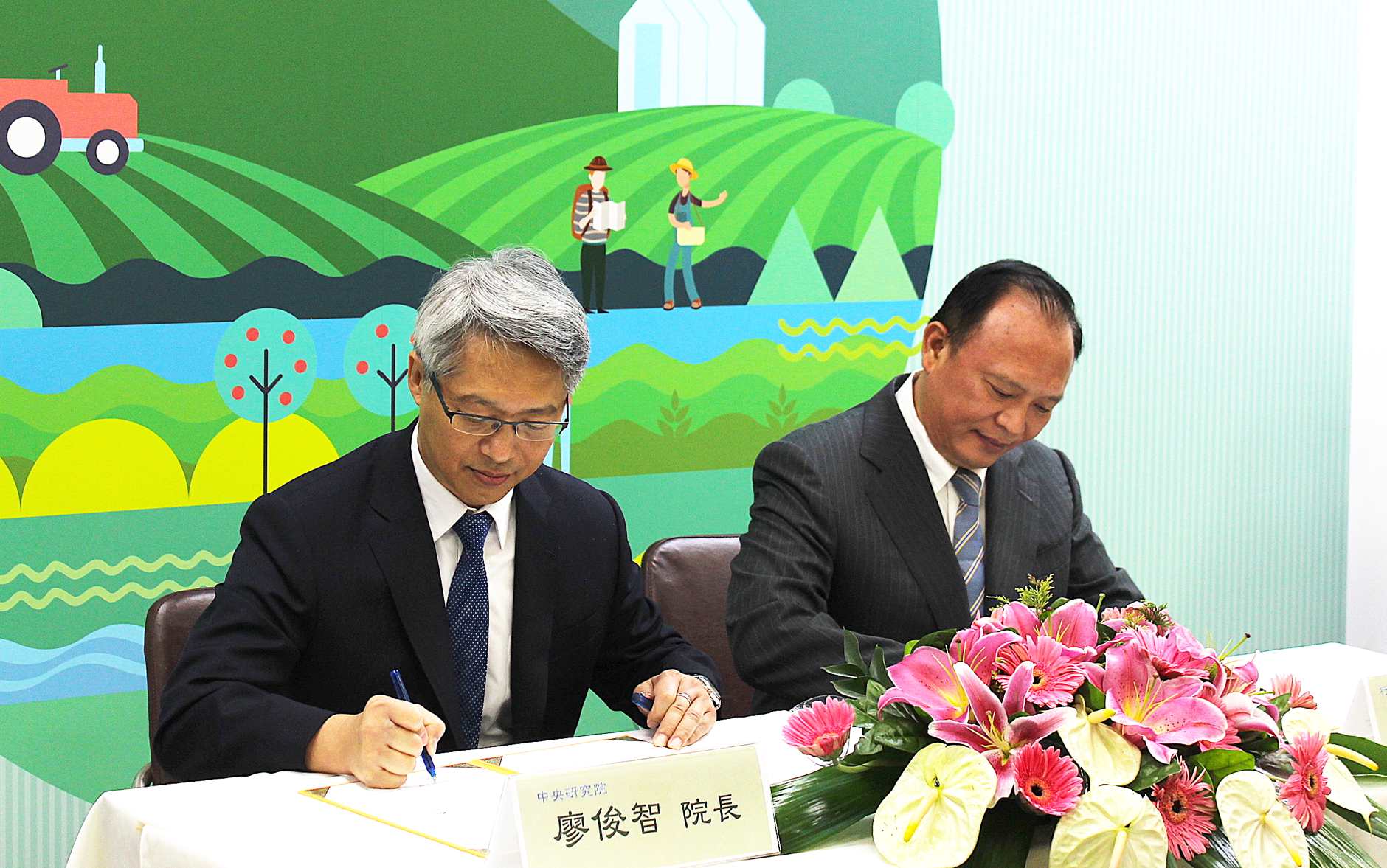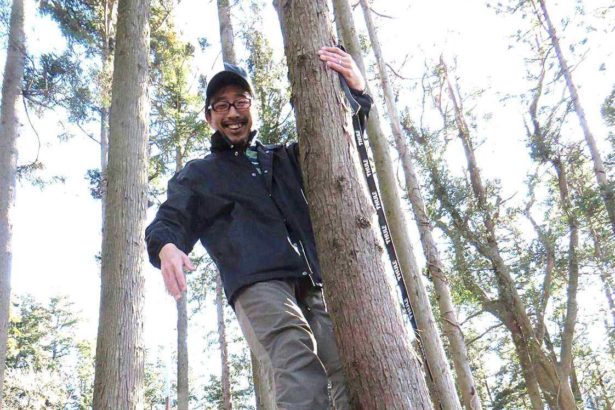The largest post-war rural social survey! The Council of Agriculture joined hands with the Academia Sinica to conduct a five-year comprehensive survey of the budget of 300 million.
Share295 + 1 Tweet EmailShares 295
For the first time, the Council of Agriculture and Academia Sinica (Academia Sinica) cooperated with each institute and four domestic universities in an interdisciplinary manner, with an annual research budget of NT $60 million to NT $70 million. It is planned to spend five years to record the environmental, industrial, social, cultural and historical changes in rural Taiwan.
This is Taiwan's first rural-oriented investigation and study since World War II. Lin Congxian, chairman of the Council of Agriculture, and Liao Junzhi, president of the Academia Sinica, signed an agreement on cooperation in rural social and cultural investigation in Taiwan at today's (26) press conference. Lin Congxian, chairman of the Council of Agriculture, and Liao Junzhi, president of the Academia Sinica, hope to leave a rural memorandum for the next generation.

.jpg)
From left to right are Chen Jizhong, Wang Mingke, Liao Junzhi, Lin Congxian and Xu Xueji (Photo / Lin Shijun)
Academia Sinica: using fieldwork to find a way out for Taiwan's rural areas
Liao Junzhi said that rural areas are a very important issue, but people's imagination of rural areas is mostly focused on such issues as flooding, population loss, labor shortage, cultural gaps, and so on. However, he believes that "the problems in rural areas are not just problems," and "the problems that occur in rural areas are not only rural problems, but also social problems." it's just that rural research in the past is relatively scattered and lack of systematic inspection.
He hopes that through this large-scale study conducted by the Academia Sinica, the current situation in rural Taiwan will be fully recorded, and the research results will be turned into the knowledge backing of the government in solving urban problems, rural problems, and rural regeneration. He said that the understanding of rural areas should not be based on imagination, but should use field research to find a way out for the sustainable development of Taiwan's rural areas.
Academia Sinica combined with the four universities, more than 200 people in the field of humanities and social sciences invested in the research.
Wang Mingke, academician of the Academia Sinica and moderator of the master plan of the Taiwan Rural Social and Cultural Survey Program, explained that the study will combine the Institute of Society of the Academia Sinica, the Institute of Taiwan History, the Institute of nationalities, the Institute of History and Linguistics and the Digital Cultural Center, as well as four domestic universities. in an interdisciplinary way, more than 200 people in the fields of humanities and social sciences will be invested in the field of humanities and social sciences, aiming at the current situation in rural Taiwan. A five-year systematic survey was conducted on population, land, natural resources, environmental hazard factors, economic activities, social organization, social division of labor and order, social conflicts, religion, etiquette and customs, cultural assets, cultural and educational facilities and cultural participation, health care, diet and clothing culture, living environment, traffic conditions, leisure and entertainment, etc.
The goal of this plan is to keep a complete record of Taiwan's rural environment, industry, society, culture, and the process of historical changes, and to use digital technology to preserve important historical materials in rural areas and build a human and social database in rural areas. at the same time, through the master's degree training program, young domestic scholars will join the rural research team to revitalize Taiwan's agricultural research. Wang pointed out that the analysis of rural issues is also a discussion of the country's urban and rural development, and all countries are paying more and more attention to rural issues, and the current rural areas have been promoted to the issue of globalization, calling on people to learn about Taiwan's rural culture.
Excavate grass-roots wisdom and life stories to make the countryside a prominent school.
Hsu Hsueh-chi, director of the Institute of Taiwan History of the Academia Sinica, shares that through fieldwork, she has unearthed many first-hand rural historical materials and can piece together a jigsaw puzzle of traditional life, culture and skills in rural Taiwan. For example, the local seniors all have many life stories, which are the soul of the countryside. The researchers came into contact with an old fisherman in Yuguang in Anping, who performed the soon-to-be-lost "Fish planting Song."these are all rural stories that we didn't know before."
(note: "fish planting" is fish fry, and early fish planting is very expensive. in order to maintain the fairness between the seller and the buyer, both parties will count the fish fry together by singing, counting fish fry and shouting at the same time, which is an ancient way to calculate fish. )
Xie Kuo-hsiung, director of the Institute of Sociology of the Academia Sinica, also mentioned that Taiwan has not conducted a comprehensive study with rural areas as the main body for a long time. "this rural social and cultural survey is the first rural study after the war." He describes that rural research has not been a prominent study for a long time, but in recent years, more and more master's degree students in sociology have begun to focus on agriculture and rural areas. "this means that our next generation is gradually paying attention to agriculture. This echoes the return of young farmers and their entrepreneurship, which shows that agricultural research in Taiwan is reviving."
For example, Dounan Town, Yunlin County, succeeded in planting black-shell green bamboo shoots and supplied them to Dingtaifeng. Local farmers used the existing production and marketing class system to introduce more efficient organization and operation, and the local farmers' associations leased land and recruited them to small farmers for reclamation. Salaries were paid in the first three years, but only in the fourth year did farmers pay their own rent, successfully achieving the goal of revitalizing arable land. At the same time, it also makes farmers who want to work do not fear the lack of arable land and give full play to the "strategy of small landlords and big tenants." in fact, farmers are very powerful, Taiwan's rural areas are very dynamic, and rural areas are rich in power and can produce new vitality in response to the changes of the times. Our investigation is to find out these vitality. "
Share295 + 1 Tweet EmailShares 295
- Prev

Chuangsheng Hall 02 │ creates local economic power! The career developed from living on the ground thrives organically.
Chuangsheng Hall 02 │ creates local economic power! The career developed from living on the ground thrives organically.
- Next

Walk with God, the secret of the tea country is in Chiayi
"this is a secret journey that you can't miss." there is no need for an emissary to lead the way. The tea country is in Chiayi! The scenery of the mountain city of Chiayi County is all-inclusive, comparable to the classic scenes in the movie Walking with God, whether it is forest or giant.
Related
- A course of planting techniques and methods on how to grow carrots
- How to plant the latest tulips?
- Is it better to pick tea in the morning or in the afternoon? When is the best time for tea to be picked? what is the third or fifth tea?
- Launch Yuanxiao Happy combination Haocha + Tea Yuan healthy Taste
- Penghu Tourism "Fireworks 20 Parade with You"
- 2022 West Lake Happiness holds "Digital Revitalization Voucher" and draws iphone13 and laptop.
- Banqiao Fuzhou social houses are designed to change start-up combined with police elimination to create a safe and livable environment
- The convenient measure of "mechanical weeding" in Xinbei has been abused and the Agriculture Bureau has imposed heavy penalties on the illegal land consolidation.
- Changgeng University Joins Hands with Four Memory Factories to Rescue Memory Talent Shortage
- The list of Taiwan's top 100 MVP managers is listed by the Director-General of the Farmers' Association of Sanxia District.

